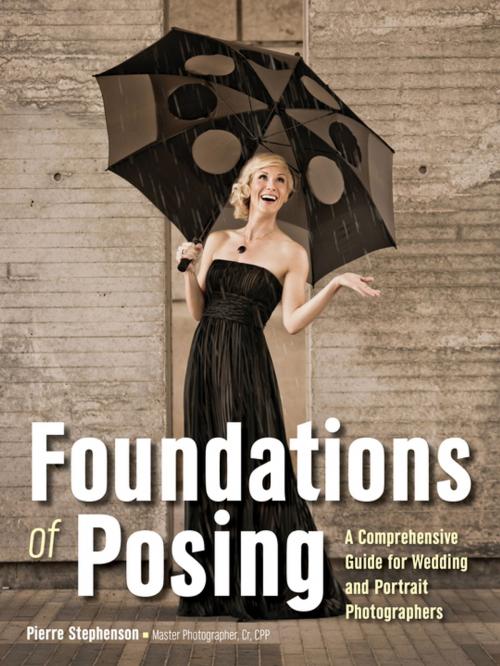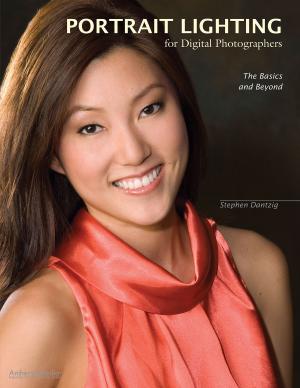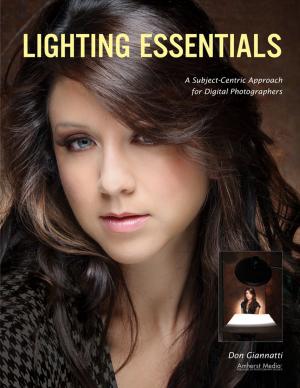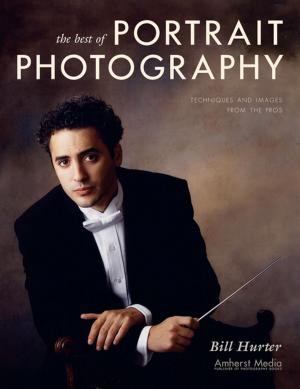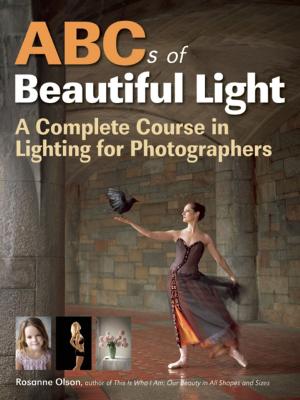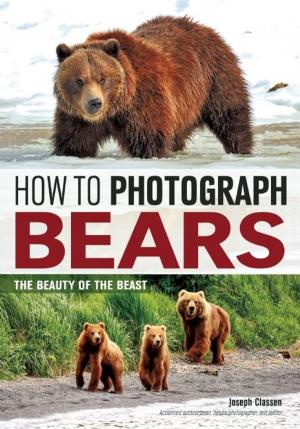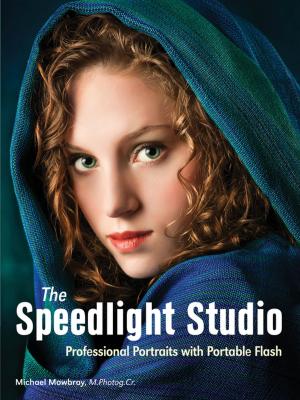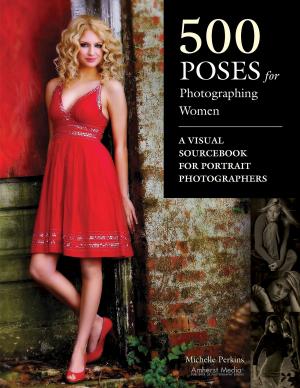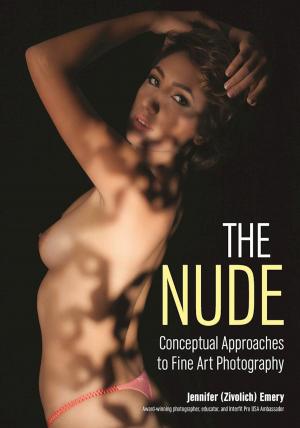Foundations of Posing
A Comprehensive Guide for Wedding and Portrait Photographers
Nonfiction, Art & Architecture, Photography, Equipment & Techniques, Techniques| Author: | Pierre Stephenson | ISBN: | 9781608959464 |
| Publisher: | Amherst Media | Publication: | September 21, 2015 |
| Imprint: | Amherst Media | Language: | English |
| Author: | Pierre Stephenson |
| ISBN: | 9781608959464 |
| Publisher: | Amherst Media |
| Publication: | September 21, 2015 |
| Imprint: | Amherst Media |
| Language: | English |
Photographers must have a clear understanding of how the human body, from head to toe, should be posed and adjusted in order to look good-and natural-to the camera. Learning effective strategies to flatter the face, arms and legs, torso, and hands and feet will allow us not only to flatter our subjects but also effectively tell the subject’s story.
Regardless of your photographic style, the tips and techniques outlined in this book will allow you to better control what the camera sees and the mood or message you want to convey. Whether you are a portrait or lifestyle photographer, photojournalist, fashion or commercial photographer, this book is designed to help you learn skills that you can apply to your specific style and method of shooting.
Stephenson maintains that you should first identify the intent of your portrait before you begin to analyze the way in which you will pose your subject or subjects. How will the client use the image? Does he or she need a business portrait, which will require an air of authority and confidence, with a traditional vibe? Is the couple who booked the session deeply in love, and would a pose that speaks to their emotional closeness be appropriate? The author then moves into a discussion on body language. The way that an individual holds himself says much about his mind-set, mood, and motivations. Image viewers subconsciously read the cues that the subject’s body conveys. It is important to ensure that the body language that is summoned through posing suits the mood/theme /intent of the portrait.
There are traditions of posing that have been in play in the visual arts for eons. Many photographers fall into using the same pose for every subject. When this happens, all of the images that leave the studio begin to look the same. This can have dire consequences when it comes to the public perception of the photographer’s work-and can squelch the joy photographers feel when creating. Stephenson offers simple approaches to flattering every body part when photographing individual clients and also teaches readers how to create artful images of couples and groups, as in multi-subject portraits, each individual must look great and relate logically and aesthetically to other subjects in the frame.
With tips for posing the young and old, males and females, singles, couples, and groups in both indoor and locations-and in reclining, seated, and standing poses, from full-length to close-up, this book will walk you through all aspects of posing and balance with examples and easy to follow instructions. It’s time to stop guessing and learn the art and science of posing.
Regardless of your photographic style, the tips and techniques outlined in this book will allow you to better control what the camera sees and the mood or message you want to convey. Whether you are a portrait or lifestyle photographer, photojournalist, fashion or commercial photographer, this book is designed to help you learn skills that you can apply to your specific style and method of shooting.
Stephenson maintains that you should first identify the intent of your portrait before you begin to analyze the way in which you will pose your subject or subjects. How will the client use the image? Does he or she need a business portrait, which will require an air of authority and confidence, with a traditional vibe? Is the couple who booked the session deeply in love, and would a pose that speaks to their emotional closeness be appropriate? The author then moves into a discussion on body language. The way that an individual holds himself says much about his mind-set, mood, and motivations. Image viewers subconsciously read the cues that the subject’s body conveys. It is important to ensure that the body language that is summoned through posing suits the mood/theme /intent of the portrait.
There are traditions of posing that have been in play in the visual arts for eons. Many photographers fall into using the same pose for every subject. When this happens, all of the images that leave the studio begin to look the same. This can have dire consequences when it comes to the public perception of the photographer’s work-and can squelch the joy photographers feel when creating. Stephenson offers simple approaches to flattering every body part when photographing individual clients and also teaches readers how to create artful images of couples and groups, as in multi-subject portraits, each individual must look great and relate logically and aesthetically to other subjects in the frame.
With tips for posing the young and old, males and females, singles, couples, and groups in both indoor and locations-and in reclining, seated, and standing poses, from full-length to close-up, this book will walk you through all aspects of posing and balance with examples and easy to follow instructions. It’s time to stop guessing and learn the art and science of posing.
Photographers must have a clear understanding of how the human body, from head to toe, should be posed and adjusted in order to look good-and natural-to the camera. Learning effective strategies to flatter the face, arms and legs, torso, and hands and feet will allow us not only to flatter our subjects but also effectively tell the subject’s story.
Regardless of your photographic style, the tips and techniques outlined in this book will allow you to better control what the camera sees and the mood or message you want to convey. Whether you are a portrait or lifestyle photographer, photojournalist, fashion or commercial photographer, this book is designed to help you learn skills that you can apply to your specific style and method of shooting.
Stephenson maintains that you should first identify the intent of your portrait before you begin to analyze the way in which you will pose your subject or subjects. How will the client use the image? Does he or she need a business portrait, which will require an air of authority and confidence, with a traditional vibe? Is the couple who booked the session deeply in love, and would a pose that speaks to their emotional closeness be appropriate? The author then moves into a discussion on body language. The way that an individual holds himself says much about his mind-set, mood, and motivations. Image viewers subconsciously read the cues that the subject’s body conveys. It is important to ensure that the body language that is summoned through posing suits the mood/theme /intent of the portrait.
There are traditions of posing that have been in play in the visual arts for eons. Many photographers fall into using the same pose for every subject. When this happens, all of the images that leave the studio begin to look the same. This can have dire consequences when it comes to the public perception of the photographer’s work-and can squelch the joy photographers feel when creating. Stephenson offers simple approaches to flattering every body part when photographing individual clients and also teaches readers how to create artful images of couples and groups, as in multi-subject portraits, each individual must look great and relate logically and aesthetically to other subjects in the frame.
With tips for posing the young and old, males and females, singles, couples, and groups in both indoor and locations-and in reclining, seated, and standing poses, from full-length to close-up, this book will walk you through all aspects of posing and balance with examples and easy to follow instructions. It’s time to stop guessing and learn the art and science of posing.
Regardless of your photographic style, the tips and techniques outlined in this book will allow you to better control what the camera sees and the mood or message you want to convey. Whether you are a portrait or lifestyle photographer, photojournalist, fashion or commercial photographer, this book is designed to help you learn skills that you can apply to your specific style and method of shooting.
Stephenson maintains that you should first identify the intent of your portrait before you begin to analyze the way in which you will pose your subject or subjects. How will the client use the image? Does he or she need a business portrait, which will require an air of authority and confidence, with a traditional vibe? Is the couple who booked the session deeply in love, and would a pose that speaks to their emotional closeness be appropriate? The author then moves into a discussion on body language. The way that an individual holds himself says much about his mind-set, mood, and motivations. Image viewers subconsciously read the cues that the subject’s body conveys. It is important to ensure that the body language that is summoned through posing suits the mood/theme /intent of the portrait.
There are traditions of posing that have been in play in the visual arts for eons. Many photographers fall into using the same pose for every subject. When this happens, all of the images that leave the studio begin to look the same. This can have dire consequences when it comes to the public perception of the photographer’s work-and can squelch the joy photographers feel when creating. Stephenson offers simple approaches to flattering every body part when photographing individual clients and also teaches readers how to create artful images of couples and groups, as in multi-subject portraits, each individual must look great and relate logically and aesthetically to other subjects in the frame.
With tips for posing the young and old, males and females, singles, couples, and groups in both indoor and locations-and in reclining, seated, and standing poses, from full-length to close-up, this book will walk you through all aspects of posing and balance with examples and easy to follow instructions. It’s time to stop guessing and learn the art and science of posing.
